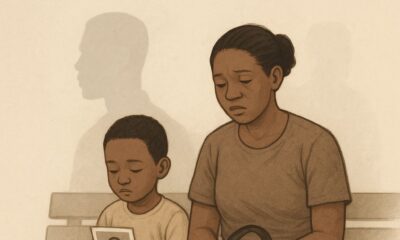Features
Why Do We Assume People’s Bad Behaviour is Their “True Colour”?

Humans have different personalities and exhibit different behaviours, some of which are influenced by times, seasons, situations, places, events, other people, and so on. A boisterous person can be calm and collected on some occasions, in some places, or in the presence of some people. A shy person can become very outspoken in some situations or in the presence of some people. Occasionally, we pop our heads out of our shells and step out of what people perceive to be our character. Sometimes it can be negative – like a person many people know to be polite being rude to someone, a humble person bragging about something, or a calm person throwing occasional bouts of tantrums.
Amusingly, the idea that someone has a true colour is one we seem to be obsessed with, it is almost as if we have been looking for a particular trait in the person to convince ourselves that he/she is not who we think he/she to be. In searching for a person’s true colour, we hold on to a single action of that person and make it the person’s entire personality. We think the worst of others, we then anticipate and watch out for when that person will F up. So when they eventually do, it becomes a “see, I knew it!” situation.
We see it on social media and in our everyday lives. A colleague who has been with the company for 6 months can say something wrong and people will go “Oh, he has been pretending all these while, he’s just showing his true colour now.” A person who has been calm for a long time can do something out of anger and people will go “See? We knew she wasn’t calm, she’s showing her true colour now.”
It gets worse when a person’s financial status is elevated. There are many tales of how a person’s true colour becomes obvious when they get some ‘dough’. But these true colours are always negative – pride, pomposity, snobbishness, stinginess and what not. Now, it doesn’t matter if that person has been a good person for many years. It doesn’t matter what that person is going through at the moment. It doesn’t matter that the person has too many financial obligations and cannot meet your own financial demands. But yea, the person now has money and whatever (negative) character is being exhibited now is the person’s true colour.`
Situations, times and seasons, money, love, places, and so on, change people. A person who has lived in Jos, for instance, can become more aggressive if he lives in places like Mushin or Ajegunle for weeks, or is forced to constantly relate with agberos in Lagos. This doesn’t mean that person’s ‘true colour’ is aggression. It also doesn’t mean that the person’s calmness all these years has been faux.
People change. We learn, we grow, we evolve, we drop some habits and pick up others, we try out some things and take new steps. People go through phases too – there are times when they are finding themselves, making resolutions and trying to be different.
In making people’s bad behaviour their true colour, we become blind to their other amazing personalities, we become too quick to assume the worst of others, and we forget all the good things they have done in the past. We forget who they are inherently and hold on to the actions they display occasionally. We also become blind to the circumstances that propel or influence their actions. A person who is struggling with his/her mental health at a particular time will not be nice to you at that particular time. The person may yell at you or snub you as you talk. This doesn’t mean the person is a snobbish person neither is anger the person’s default behaviour.
At some point, we all need to ask ourselves why a person’s bad behaviour is what we choose to call the person’s ‘true colour’? Your friend has been good to you all this while and then one day he insults you or says something hurtful and you suddenly realise the “true nature” of your friend. Why is the goodness he/she has shown you all along not the person’s true nature?
Humans are not perfect and expecting perfection is you wanting the sun to shine all day long. We need to give other people the benefit of the doubt we expect them to give us. We need to recognise that humans, at different points in time, will exhibit different characters – and that is fine. We should all endeavour to remember people for the good they have done and are still doing.
It is an entirely different case if a person exhibits the same terrible character over and over again. A person who is fond of talking down on others at the littlest opportunity is simply not a good person, and is different from a person who did it once out of anger. The whole essence of tolerance is to know that humans will always be humans and you shouldn’t expect perfection from other people. We have our moments of anger and outbursts and our moments of calms and peace. We have our moments of maturity and moments when we’re simply immature in handling issues.
Humans have many colours and our perception of people shouldn’t be hinged on their one-off actions.





















